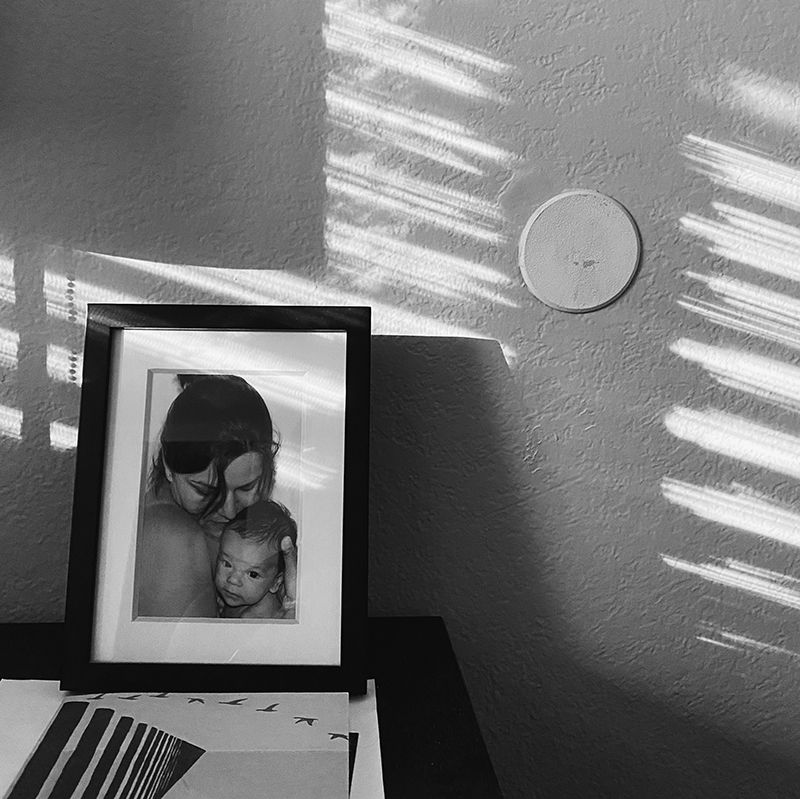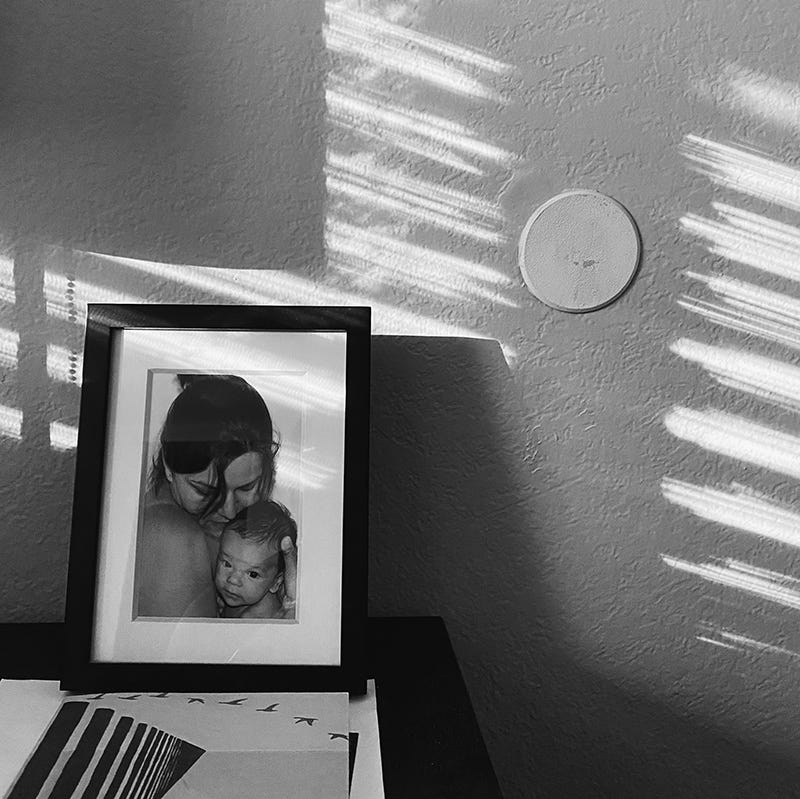Acceptance

There’s a thing that people say sometimes about writing as a way of finding out what you’re thinking about. I’ve known for a while that photography is like that for me, I take pictures every day, almost entirely on instinct, and it’s only in looking back over what I’ve been photographing over weeks or months or years that I discover a theme emerging. I hadn’t realized that writing could be that way for me as well, but the exercise of writing a weekly newsletter is showing me my patterns. Looking back at the titles of my last few letters—“Not If, But When,” “Irrevocability,” “The Party of Stasis”—it seems I’m on a bit of a theme here, and of course today is no different.
I spent part of my Tuesday morning pleading with my Congressman—a centrist who continues to rise in the ranks of the Democratic establishment—to use this term to push for bold changes. My fear, I explained, is that unless people see real, meaningful changes in their day-to-day lives, 2024 (and maybe even 2022) are going to be a bloodbath for the Democrats, one that this country might not survive. He, unsurprisingly, used that as an opportunity to talk about rejecting socialism. Even on climate, supposedly his number 1 issue, he downplayed the urgency of the situation, saying on the one hand that we only have ten years to get a plan in place (a misleading statement—decarbonization needs to be in full swing by then, not just beginning to ramp up) but saying on the other hand that we need to work with Republicans to pass what we can while also recognizing that people are still going to drive to work and cook on gas stoves. This is a man who claims to have read the IPCC reports, which lay out in great detail the necessity for dramatic changes to land use, agriculture, and every sector of the economy, but who still found time to scold climate activists for scaring off centrist voters by telling them that they wouldn’t be able to have on-demand commercial air travel in the future. It’s all the sort of thing that manages to be completely unsurprising while still also managing to shock me.
Yesterday morning I listened to the latest episode of the podcast Reply All. The episode was called “A Song of Impotent Rage,” and the first ten minutes or so was basically a deep dive into one of the hosts’ anxiety and depression about climate doom. This was, as you might imagine, not great for my own climate doom-related anxiety. Later, during my lunch break, I got to record a wonderful conversation for my own show, a discussion about art and poetry that was both intellectually stimulating and affirming of our shared humanity. It was lovely, but as has been happening more and more often lately, afterwards I found myself wondering how much longer I’ll get to do this.
Podcasting as a medium cannot exist without our massive technological infrastructure, of course. The way my show in particular is structured, most of the conversations are recorded remotely, with my guest and I often separated by thousands of miles. I keep the video stream disabled in order to save bandwidth, so most of the time we don’t even see each others’ faces. In a lot of ways, the show has been a lifeline for me, and not just during the pandemic. Before my show, I rarely got the opportunity to talk about art or literature at all. More recently I’ve been able to make more connections locally, so I could in theory access some of what I get from the show. But I wouldn’t be able to reach nearly the same range of artists if not for my podcast and all of the electronic interconnectivity that enables it. Already people smarter than I am are talking about a world without things like cheap, fast transportation or round-the-clock electrical power—which, admittedly, already describes life in many parts of the world. Surely in such a future, art and literature and conversation will still exist, but I have trouble imagining podcasts will.
What I mean to say is that I understand the desire to hang on. I have always had difficulty with change. Even something as simple as moving to a new house has been emotionally challenging for me; losing my entire way of life is almost more than I can bear to contemplate. So when I look at someone like my Congressman, who has hung his hat on the idea that things won’t really need to change, I get it. Honestly, I want that, too.
The instinct to preserve is something we all experience to one degree or another, and for the most part it is an instinct that served our ancestors well. Stability for our ancient forebears meant survival; change often came with the risk of deprivation or death. Holding on to our way of life is the most natural thing in the world. But when our way of life is the thing killing us, holding on only accelerates the end. When change is inevitable, it may only be in letting go that we are able to save anything.
I and my colleagues have spent the past four years in resistance. It was the right thing to do. In many ways it still is—there are people in positions of power who want to make things worse, and it’s necessary to prevent them from doing so. But I think the real work ahead of us is not in resistance but in acceptance, and moreover in finding ways to teach others to accept. The world is going to look different whether we want it to or not, and it’s going to happen much more quickly than we’re currently prepared for. The sooner we can accept that, the sooner we can figure out how to make that new world a liveable one.
He Doesn’t Look Like That Anymore

What I’ve Been Up To
- This week on Keep the Channel Open, I’m revisiting my 2017 conversation with poet José Olivarez. It was a real treat for me at the time to talk with José, who was the co-host of one of my all-time favorite podcasts, The Poetry Gods, not to mention a writer whose work I admired greatly (and still do). Listening back to our conversation, I’m struck by how even though a lot has changed in the past three years, so much of what we talked about still resonates with me.
#BuyArtFriday
It’s time for #BuyArtFriday again! Here are some items for your consideration:
- Photographer Jennifer McClure has three new online workshops coming up in 2021: "Diving Deeper: How to Move a Project Forward" with the Maine Media Workshops (Jan 27–Feb 24), "Memory Play" with Leica Akademie (Mar 3–Mar 31), and "Artist as Subject: Strategies of Self-Portraiture" with LACP (Apr 11–May 23).
- Photographer Rachael Short has a new online shop, featuring fine art calendars, greeting cards, and special $100 print offerings. Use the code FREESHIPPING at checkout through the end of 2020 to receive, you know, free shipping.
- Cornel/Henry Art is presenting a new online exhibition, “self portrait,” featuring work by 18 photographic artists.
- Painter and illustrator Jenny Kroik has a new “Creative Year” calendar available via Zazzle.
- Photographer Fred Mitchell is running a Kickstarter for his photobook If You Go, All the Plants Will Die, forthcoming from Yoffy Press. The campaign is currently 39% funded and runs until January 9.
That’s what I have for this week. If you have art for sale or any upcoming online events, please share your links in the comments, or email them to me at buyartfriday@sakeriver.com. And please support the arts however you can!
#MatteredToMe
It’s Friday, so here are some things that mattered to me recently:
- While researching for an upcoming episode of KTCO, I came across this Q&A with Kazim Ali by the Poetry Society of America, which I believe is from 2010. The questions are about what it means to be an American poet, and what, indeed, makes American poetry "American," but the way Ali answers challenges some of the premises underlying questions like that, in a way that I found both thought-provoking and satisfying.
- Earlier this year, José Olivarez published a short essay called "An Ode to the Supermercado," which is about Chicago's Mexican grocery stores. Mostly what it is about is that feeling of familiarity and belonging that you can find in certain places and with certain people, something I think about a lot.
- On this week's episode of Callie Wright's podcast Queersplaining, they talked about trans and nonbinary representation in the latest season of Star Trek: Discovery. As a Trek fan, myself, something I've always loved about the show is how it has always had a progressive vision, and I found this conversation about what it meant to trans and enby folks to see members of their community on Star Trek to be just a joy.
- Margaret Atwood was on the New Yorker: Poetry podcast this week, reading and discussing a poem by Saeed Jones. The poem, itself, was wonderful, and the conversation Atwood had with host Kevin Young was one of the more delightful ones I’ve heard recently.
As always, this is just a portion of what mattered to me recently. Right now I’m trying to learn to make peace with uncertainty and change. I hope you’re able to find some peace, too.
Thank you, and take care.
-Mike